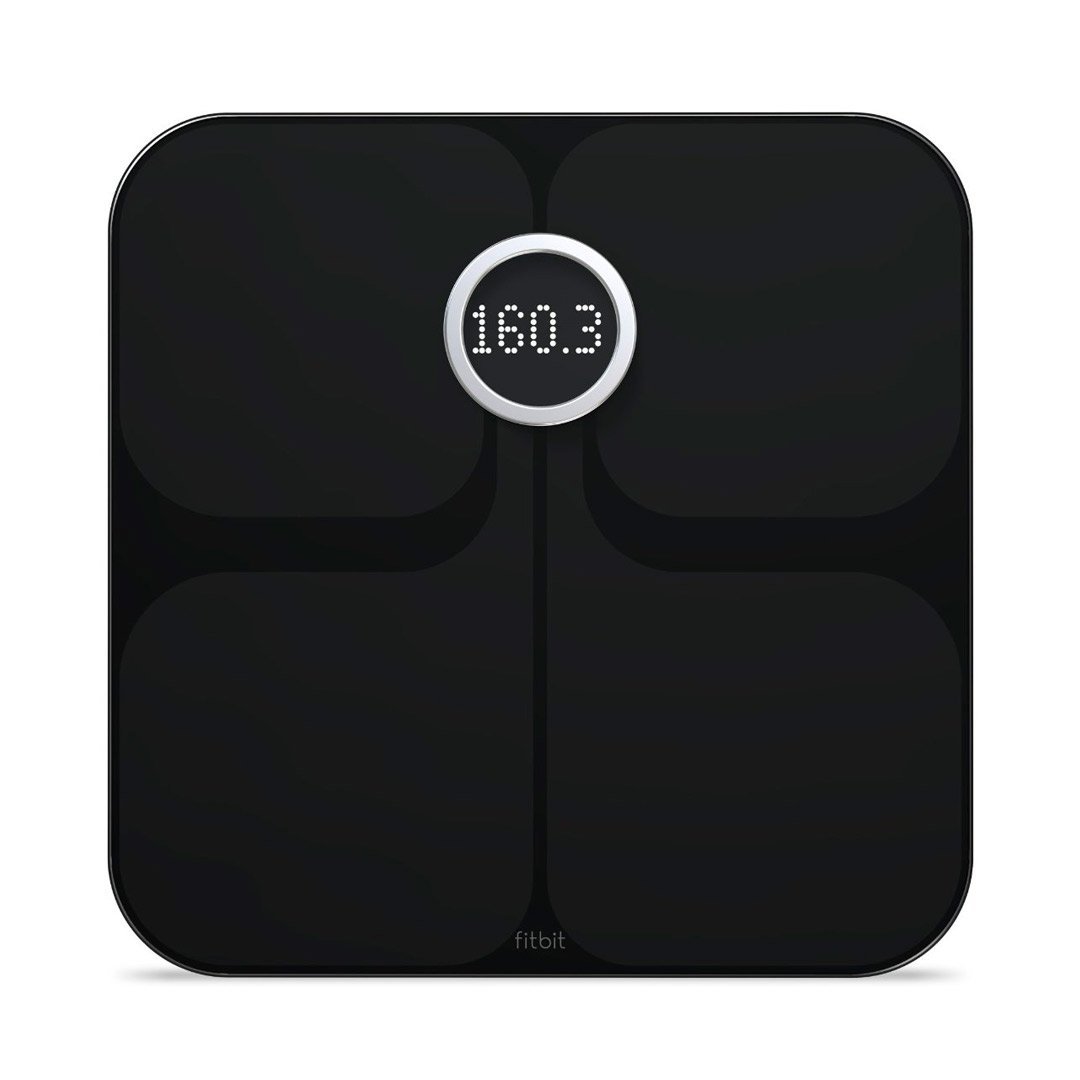
One of the most basic measures of how healthy you are is how much you weigh. And nowadays, that includes keeping track of not only your weight, but body fat percentage and body mass index (BMI), too. In a world of increasing Smart electronics like the smart phone and smart tv, it is not surprising that there is now a smart scale that will allow you to keep track of vital weight statistics online! Here is some information on a very popular smart weight scale: the Fitbit Aria WiFi Smart Scale.
Totally different from your the now quaint needle-registering weight scale, the Fitbit Aria WiFi Smart Scale uses advanced technology to track weight, lean mass, body fat percentage, and body mass index, allowing you to see all the numbers you need to start living a healthier lifestyle. And like a regular scale, other members of your family can use it, too. With room for the storage of up to eight users, this scale recognizes who you are, displays your data, and sends your stats straight to your Fitbit account through your home’s WiFi while remaining totally private to you.
The sleek polished glass surface looks classy while resisting the condensation from steamy hot showers. And when you’re in control, stepping on the scale feels kind of good.
Special Note: For those of you who are really into your Fitbit gadgets, fitbit.com lets you set goals and earn badges, and then connect with friends and share that information as you desire. You can also log food consumption and physical activities, then use Fitbit’s food plan tool to guide you to how many calories you can eat and still meet your weight goals. And when combined with the Fitbit wireless activity sleep tracker, you’ll really get an even greater view of your health and fitness status, making you more aware of your daily activities and motivating you to make those small changes that can add up to big results.
Actual Customer Review: Like many buyers of this scale, I’ve recently taken the fitbit plunge and wanted to include this scale to easily track weight and body fat fluctuations. Visually, the scale is very impressive. I got the black version and it is thin, sleek, and substantial (footprint, heft). The glass is perfectly smooth, edge beveled, and the weigh-in process (step on to step off) is done in less than 5 seconds. Aesthetically as well as fit, feel, and finish, this is a 5-star product.
Actual Customer Review: I love my Fitbit Aria. I’ve used it for about two years now and I have to say I won’t go back to a regular scale. It was pretty simple to set up. I just followed the instructions online after adding it in the Fitbit mobile app. It found my wireless router right away.
Fitbit Related Items For Sale
[phpbay]fitbit, 15, “”, “”[/phpbay]
A Few Thoughts on BMI
Body Mass Index is often used as an assessment tool to identify healthy weight, underweight, overweight, and obesity in adult patients, and for evaluating growth in children. Note that the BMI may overestimate results for adults who are muscular, such as athletes, or women who are pregnant.
BMI is a person’s weight in kilograms divided by the square of height in meters. In other words, BMI is proportional to mass and inversely proportional to the square of the height.
While BMI does not measure body fat directly, research has shown that BMI is moderately correlated with more direct measures of body fat obtained from skinfold thickness measurements, bioelectrical impedance, densitometry (underwater weighing), dual energy x-ray absorptiometry (DXA) and other methods
In general, BMI is an inexpensive and easy-to-perform method of screening for weight category, for example underweight, normal or healthy weight, overweight, and obesity.
While most may think of the body mass index in terms of being overweight, in the United States, BMI is also used as a measure of being underweight, owing to the many people with eating disorders, such as anorexia nervosa and bulimia nervosa.
Your body mass index is not about what weight you look the best at, it is about what weight are you the healthiest – with the energy stores your body needs, and the amount of tissue your organs must provide blood and oxygen to.
A high body mass index is associated with reduced risk of rheumatoid arthritis in men, but not in women. Moderately elevated body mass index is associated with metabolic variables and cardiovascular risk factors in Swedish children. Body mass index is positively associated with bone mineral density in US older adults. Body mass index is associated with USF1 haplotype in Korean premenopausal women.
Low body mass index is an important risk factor for low bone mass and increased bone loss in early postmenopausal women. Having a low body mass index can make you more susceptible to illness, affect your production of hormones, impair your growth and development, and cause infertility.
Remember though, body mass index is not a diagnostic tool, it is a reference guide.